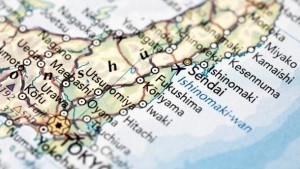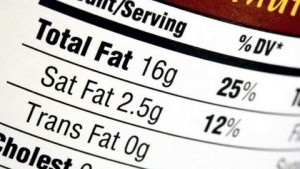Far East digest
Taiwan court’s decision to clear ‘tainted oil’ chief provokes backlash

The case against Wei Ying-chung, the company’s former chairman, along with five other officials including a former CEO and its current chairman, was dismissed by Changhua District Court due to lack of evidence.
The group was accused of selling questionably sourced oil intended for animal food. The scandal involved tainted cooking oil, nutritional supplements, milk, rice and other food products.
Prosecutors, who had been confident of securing a guilty verdict and a 30-year sentence for Wei, said they would file an appeal against the ruling.
National Taiwan University has led the boycott against the company after its office of general affairs ordered all its internal divisions to stop selling its products.
"The world is going to laugh at us,” said NTU President Yang Pan-chyr. “They will think of Taiwan as a hub for food fraud. Nobody will buy products made in Taiwan anymore.”
The ruling has also drawn the political spotlight, with commentators accusing politicians of “protecting” Ting Hsin.
One said that Taiwan faced “a menacing parallel to the late 19th and early 20th century United States, when corporations openly bought influential officials”.
“Both ruling and opposition parties are now involved in mutual mudslinging, each accusing the other of pocketing Ting Hsin's political contributions,” claimed Yuan-Ming Chiao in The China Post.
An opposition presidential candidate said the verdict showed that Taiwan’s legislative and judiciary systems lacked the means to resolve food safety disputes.
“The nation currently lacks sufficient manpower and expertise to carry out inspections on every food production process, let alone a unified tracking system where raw materials can be easily identified,” Tsai Ing-wen said while campaigning for the opposition Democratic Progress party.
If elected, Tsai said she would implement new safety policies, including a bigger budget for food inspections and an enhanced traceability system.
“The verdict makes people feel that the government not only is inept in maintaining food safety, but is also not making enough efforts to punish businesses,” Tsai said.
EU could soon ease restrictions on Fukushima produce
Japanese media have reported that the European Union may no longer require radiation screening for some food products imported into the bloc from the beginning of next year.
Quoting informed sources, the reports say that the EU plans to exempt vegetables, fruits other than persimmon, and livestock products from mandatory radiation checks.
Food imports from the region surrounding the Fukushima Daiichi nuclear plant have been subject to mandatory radiation checks since a disaster there in 2011.
Rice and some other foods produced in other prefectures might also be removed from the list, as will some edible wild plants.
The sources said the EU had approved a proposal to ease restrictions last week after an analysis of produce was performed by European scientists.
The executive arm of the EU is expected to officially decide on the deregulation measures by the end of this year.
Japanese ministers have put on a strong front in pursuing a scrapping of import restrictions. Most recently, foreign minister Fumio Kishida raised the subject with Federica Mogherini, his EU opposite number, in Luxembourg last month.
Japan hopes to increase its food exports by more than one-third by 2020. Currently, Europe accounts for just 5.4% of Japan’s overall exports, though this figure has increased by almost one-fifth over the last year.
If the European restrictions are eased, this will send a strong message to other countries over the safety of Japanese exports. Neighbouring South Korea currently bans the import of some Japanese fishery products, while Taiwan has been strengthening its import regulations for the country.
Patient figures show sharp rise in Korea’s obesity rate
Data taken from over 1bn doctor’s visits has found an alarming surge in the number of obese Koreans, the National Health Insurance Service’s obesity control committee has revealed.
After analysing figures from 1.1bn health examinations between 2002 and 2012, the committee said that the proportion of patients with a body mass index of 30 or over, the starting point for obesity, had grown from 2.6% at the start of the period to 4.2% a decade later.
Moreover, the proportion of severely obese patients with a BMI of 35 or over had grown by over 260% during the period.
The overall percentage of obese men was one percentage point higher than women, though in the lower income bracket, more women than men were obese, the analysis showed.
The obesity rate was highest among those in their thirties, at 5.5%, while the pace of growth was the fastest among those in their twenties, the committee said.
It also found that the risk of death for severely obese people was 1.4 times higher than that of people in the optimal weight group.
Taiwan outlaws trans fats over three years
Taiwan’s lawmakers have banned artificial trans fats in processed foods, with violators facing fines of up to NT$3m (US$92,000).
Food manufacturers will have three years to phase out the fats from their products, in line with a similar ruling by the United States earlier this year.
The World Health Organisation has set a goal of having a complete ban on trans fat worldwide by 2025. Common in margarine and snack foods, trans-fatty acids lower so-called “good” cholesterol and increase a person’s risk of heart disease.










